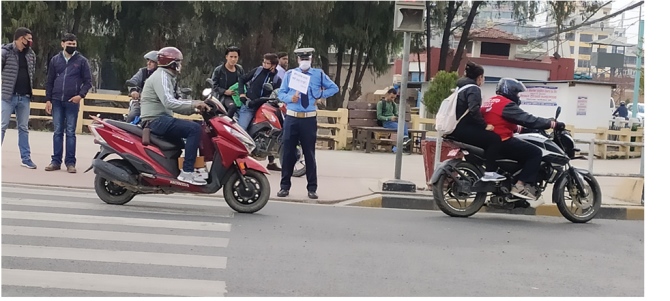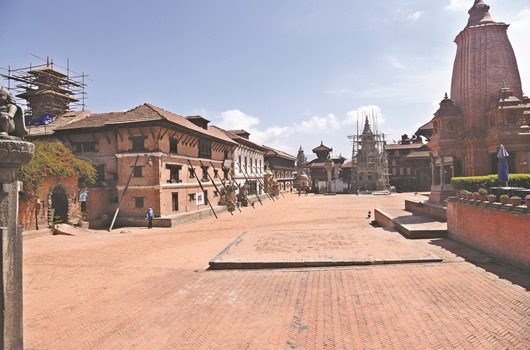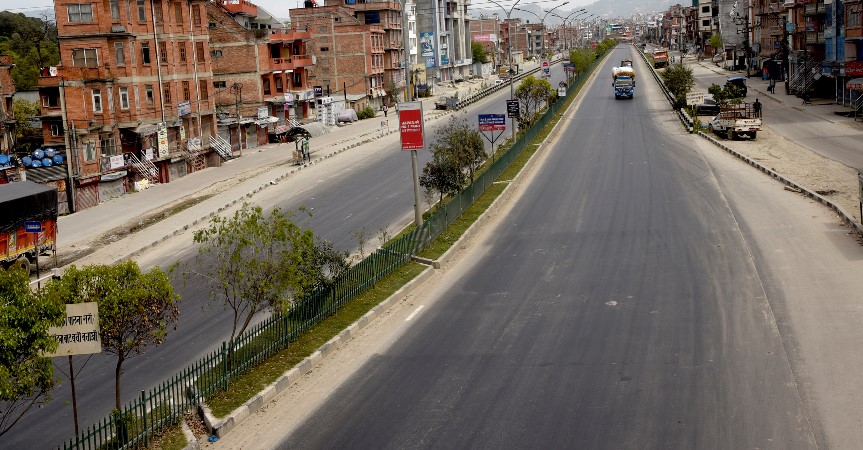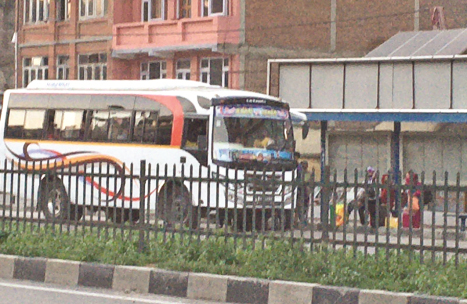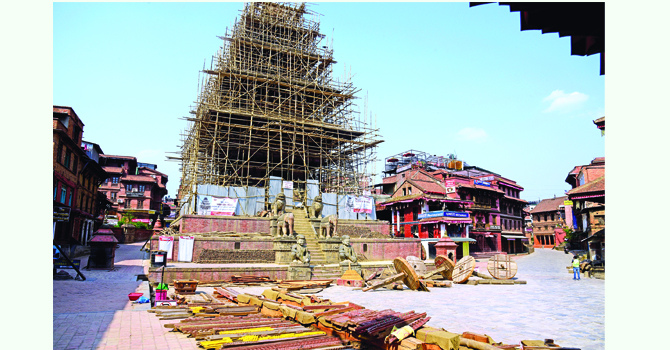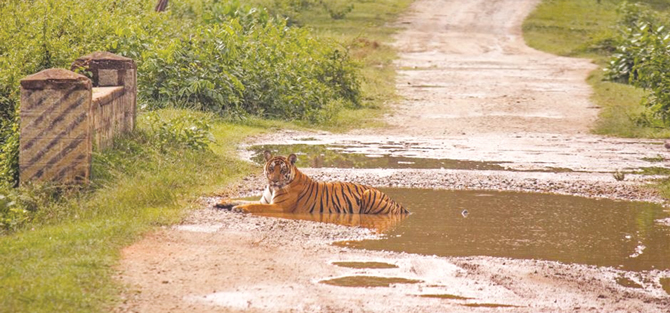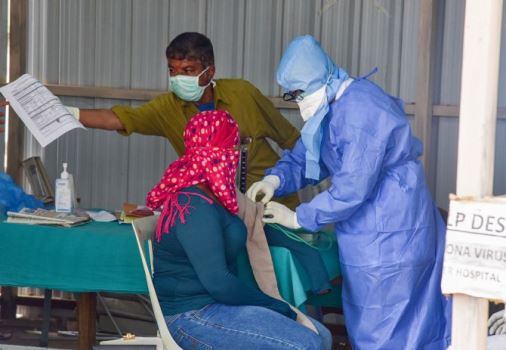Getting citizenship hard for street children
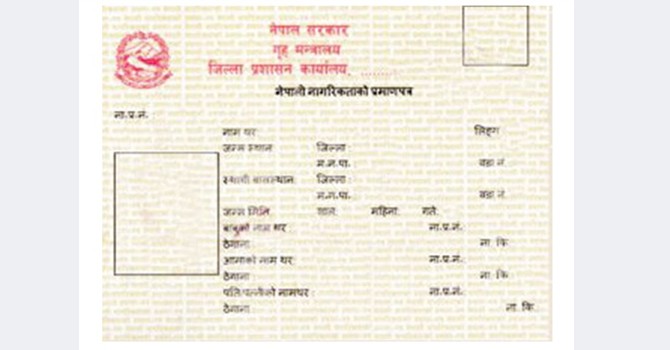
By Indira Aryal
Kathmandu, Sept. 7
Anuj Tamang (name changed), 22, wanted to become a national level football player. But his dreams were shattered after his mother died some four years ago. He is now earning his livelihood working as a labourer in the streets of the Pashupatinath area.
He was a bright student and studied up to Grade 8 but quit school after the death of his mother. He then realised that a citizenship certificate was necessary to get a job. During the process of acquiring the citizenship card, he was asked for the birth certificate as well as his father’s citizenship certificate. But he was unable to produce those documents.
His parents had been living separately; he was raised single-handedly by his mother. He has a citizenship certificate only of his mother. He even went in search of his father, but he learned that he also died in the Swoyanbhunath area.
He only knows that his parents came from Makawanpur district but he has never been there as his parents started living in Dharan before he was born. Later, they moved to Kathmandu seeking a better life.
He even sought support and asked for help to obtain the birth and citizenship certificate, but failed as he was asked for his father’s citizenship certificate. His mother’s citizenship certificate was not enough for the administration to grant him his citizenship.
He applied for jobs but was denied because he lacked the important document—citizenship certificate. “Life is not easy without a citizenship certificate, it closes all the doors of opportunities,” he grinds.
There are many orphaned children or children who are born to street-based parents who are denied citizenship certificates.
Article 11(4) of the Constitution has a provision that allows children whose parents are unknown to obtain citizenship by descent only if they can produce proof that the whereabouts of their parents are unknown. But the law specifies that such citizenship applicants should have a legal custodian, foster parents, or orphanage vouch for their parentless status. This provision does not apply to street children.
Regarding the issue, Executive Director at the National Child Rights Council (NCRC), Milan Dharel, said that the government had been working on tracing the family of the abandoned and street children for their birth registration so that they would not be denied citizenship certificate.
The government is working on rescuing the street and abandoned children and keeping them in children's homes for their better health and future. “With this, we are also working on family tracing for those children who have parents, and for those who do not have them, they will be provided with the protection of children's homes where they are staying,” Dharel said.
"Most of the privately run Children’s Homes are not maintaining the documents of children and this creates problems for the children. But for the children rescued by the government, their identity would be given by tracing their birthplace or through the shelters,” he said.
Senior Advocate and President of FWLD (Forum for Women, Law and Development), Meera Dhungana, said the recently endorsed citizenship legislation also failed to address the right to citizenship for orphaned children, street children, and children staying in shelters. She said that they had been working on the issue for a long time but failed to implement it due to a lack of proper action plans of the government.
Lawyer Punyashila Duwadi said that the right to birth and citizenship certificate has been secured by the Constitution of Nepal but other laws regarding citizenship rights are undermining the constitutional provisions.
The Constitution has given the right of citizenship to mothers but it has not been implemented yet.
The Parliamentary State Affairs and Good Governance Committee of Nepal, Federal Parliament just endorsed an amendment bill on the Citizenship Act 2063 which had been under discussion for two years, but it still failed to address such issues.
Unfortunately, the passage of the Bill has been postponed due to the sudden decision of the Government to end the parliament session. Because of this, many people who are eligible to obtain Nepali citizenship, many children of citizens by birth who are entitled to obtain citizenship by descent are being denied as the amendment of existing law is remaining for a longer time.
Biso Bajracharya, Executive Director of SathSath, an organisation working for the street and orphaned children, said that they had been lobbying for birth and citizenship certificates for such orphaned and street children since last year. Some 30 children have received birth certificates so far and 50 others are in the process to receive them.
“Due to the lockdown amid coronavirus fear, we are unable to work right now as we need to go to their respective birthplaces. As soon as the situation gets better we will start working on it,” Bajracharya said.
He said that they have been working on registering the parents’ marriage before the children’s birth registration so that they won’t face any problem while getting a certificate in the future.
According to a research done by FWLD, more than 35 per cent of people of eligible age in Nepal do not possess citizenship.
Even more than 600,000 people are eligible for citizenship every year, the government issues citizenship to only about 400,000 people."
It is also estimated that 6.7 million people will be without citizenship by 2078 if the number of people increase by the same ratio, the research revealed.
Recent News

Do not make expressions casting dout on election: EC
14 Apr, 2022
CM Bhatta says may New Year 2079 BS inspire positive thinking
14 Apr, 2022
Three new cases, 44 recoveries in 24 hours
14 Apr, 2022
689 climbers of 84 teams so far acquire permits for climbing various peaks this spring season
14 Apr, 2022
How the rising cost of living crisis is impacting Nepal
14 Apr, 2022
US military confirms an interstellar meteor collided with Earth
14 Apr, 2022
Valneva Covid vaccine approved for use in UK
14 Apr, 2022
Chair Prachanda highlights need of unity among Maoist, Communist forces
14 Apr, 2022
Ranbir Kapoor and Alia Bhatt: Bollywood toasts star couple on wedding
14 Apr, 2022
President Bhandari confers decorations (Photo Feature)
14 Apr, 2022



